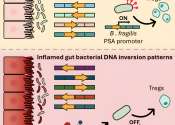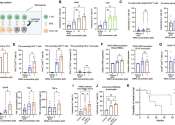Review highlights the potential and promise of CAR-T cell therapy in autoimmune diseases
Autoimmune disease (AID) refers to the condition in which the immune system identifies the body's own cells and tissues as foreign, resulting in systemic inflammation. The immune system's self-attack via autoreactive B and ...
21 hours ago
0
2









